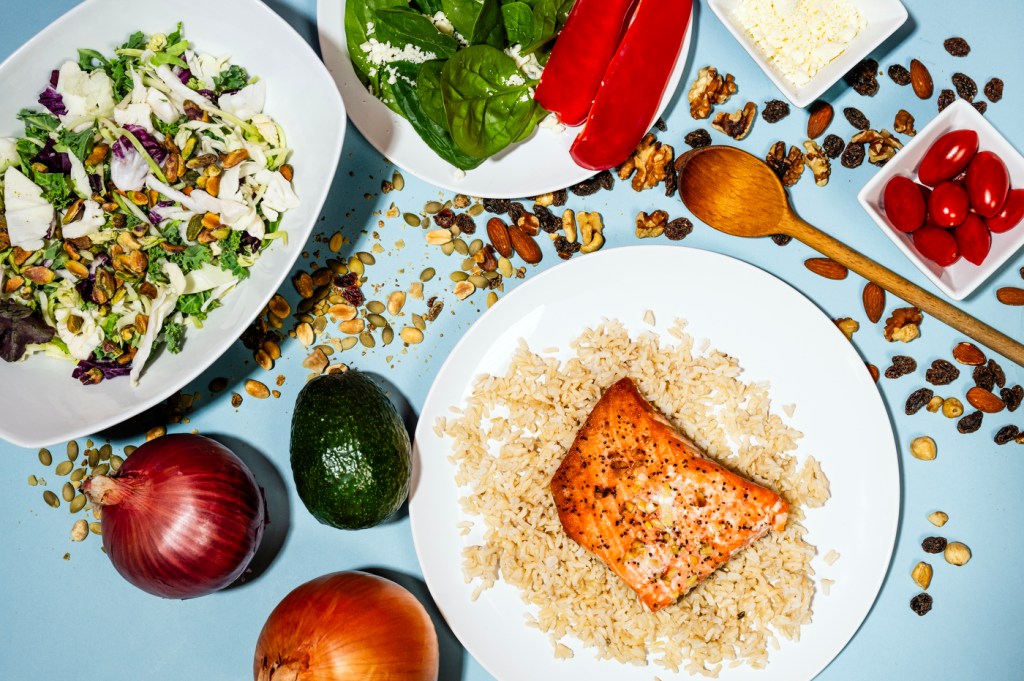What is the Mediterranean diet? It’s more than just eating less processed foods, experts say

You’ve heard about the Mediterranean diet.
But do you know the foods in the plan, and the wine that can be enjoyed with it?
Northeastern associate teaching professor Janice Maras, who will be part of a symposium on Friday sponsored by the Italian consulate of Boston, says it is based on a diet of vegetables, fruits, nuts and whole grains.
The science behind the food plan’s health benefits — and samples of Italian cuisine and wine — will be presented at the symposium from 5 to 8:30 p.m. on the sixth floor of the Alumni Center at 716 Columbus Ave. on Northeastern’s Boston campus.

The event will feature physicians from Massachusetts General Hospital and Harvard Medical School as well as Maras, who has a doctorate in education and a master of science degree in nutrition and dietetics.
The symposium will be moderated by Paolo Gaudenzi, scientific attache for the consulate general of Italy in Boston and be followed by food and wine pairings curated by famed Boston-area chef Marisa Iocco.
Although the “Mediterranean Diet: Science and Tradition” event is free, registration is required.
In preparation for the event, Northeastern Global News interviewed Maras, director of Northeastern’s Dietary Assessment Center, about how and why to follow the Mediterranean diet. The question and answer has been edited for brevity.
What is the Mediterranean diet?
It’s a traditional eating pattern that’s been around for centuries in areas bordering the Mediterranean Sea, in countries like Italy, Spain and Greece.
It’s a wholesome way of eating less processed foods. It’s based on vegetables and fruits, beans, lentils, nuts and whole grains.
I did studies in 2013 and 2018 that proved if you adhere to the Mediterranean diet you scored higher on cognition and had better sleep patterns.
There have been so many positive outcomes with this diet. I don’t even like to call it a diet. It’s just real food.
What foods are included — and why?
Olive oil is included in the Mediterranean diet. It is a good source of omega-3s and is heart healthy.
Fruits, including berries, that have phytochemicals and are low glycemic are on the plan. They are good for diabetics trying to watch their blood sugar.
Along with vegetables of all kinds, fruits are high in fiber and that’s good for our gut.
The recommendation is that people eat fish two to three times a week. Fish is good for the brain and is another good source of omega-3s.
Reducing red meat and processed meat consumption is important. It can help reduce your risk of colon cancer, which is on the rise.
What about wine?
Alcohol is included, which I think is why a lot of people love the Mediterranean diet. But that is in moderation. A glass of wine, red wine, is part of the plan.
And dairy?
People on the Mediterranean diet consume far less milk than the average American. Substitute more healthy dairy food items like yogurt and feta cheese.
What other foods are not on the Mediterranean diet?
Heavily processed foods, refined grains like white bread and sugary drinks are not on the diet plan.
Sweets are included in moderation. My husband’s family is Greek, and we have baklava, which includes honey and nuts. It’s so good.
What are tips for easing into the Mediterranean diet?
I tell my students to try stir-frying vegetables. That’s a good way to take vegetables you like and introduce a new vegetable to build your palate.
You can do the same thing with salads. Add some beans, which are very good for fiber. Chickpeas are a favorite. Just try and experiment
How can you tweak a traditional Thanksgiving meal to add elements of the Mediterranean diet?
Baste your turkey with dark or virgin olive oil. Roast your vegetables. Make stuffing with sourdough, which doesn’t have gluten and is not as tough on your digestion — which is good for people with gout.
One thing I noticed with my husband’s family is they always start with a feta tray with Kalamata and Spanish olives and greens, while in my house we had chips and Doritos and
dips. When you’re serving appetizers, try to make them real food.
Cynthia McCormick Hibbert is a Northeastern Global News reporter. Email her at c.hibbert@northeastern.edu or contact her on X/Twitter @HibbertCynthia.






